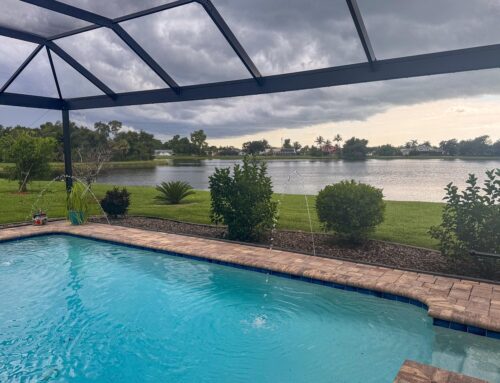For Floridians, hurricane season requires annual vigilance and preparation. Whether a tropical storm is on its way, or a major hurricane is bearing down – it is essential for prudent residents to protect their home and safety. While most are aware of the basic tips to prepare for these named storms, an annual review is a smart move for any homeowner.

Because every year is different, it is important to know how to find information from your local government agency who can inform you are to evacuation zones, escape routes and shelters.
- Identify Your Evacuation Zone:
Evacuation zones are those areas where storm surge may occur. The specific zone you live in will dictate the chances of being affected by storm surge. It will also determine if you should evacuate based upon the severity of the storm. If you aren’t aware which zone you reside in, contact your local government-emergency management office. Keep in mind, there is a prescribed period of time in which it is safe to evacuate. Oncde ths storm is imminent, it may be safer to stay home than be caught on the road. Emergency responders can instructyou if you are not sure. - Understand Your Risk:
Homes with higher elevation are less vulnerable to storm surge, but we do not have significant elevation differences on the Gulf Coast. Therefore your home’s elevation may make a difference as to how likely it is that your property will be damaged due to flood. Search your address in FEMA’s Preliminary Flood Hazard Map. - Annually Review Your Insurance Coverage:
Many homeowners haven’t reviewed their deductible for years, but everyone should educate themselves as to the terms of their policy before hurricane season. It is possible that your situation has chnaged and the deductible is no longer viable for you. You should annually review your policy and make sure that any home renovations, additions, or updates are reflected in your policy. Every coastal homeowner should also add flood insurance to their policy, even if they are not required to do so. Many people do not understand that their homeowners policy does not cover flood unless expressly stated. Expert Tip: Create a reference sheet with your policy information and your agent;s name and phone nmber. Keep it in your wallet in case you find yourself without your policy information. - Make a Personal Home Inventory:
Take photos or videos of all areas of your residence, documenting your possessions in a visual inventory list. (Be sure to write it all down as well.) Store valuable possessions in structurally sound, waterproof areas to help minimize the opportunity for damage. Make sure that your photos are date-stamped in order to facilitate the claims process. - Create an Emergency Plan for your Family:
Before a storm is on the radar,talk with your family to strategize how you will stay in contact with each other in the event of an emergency. Decide where you will go and assign any jobs necessary. Create a list of emergency phone numbers (doctor, veterinarian, animal shelters, Red Cross, etc.) to include in your emergency plan as well. Write it all down, and provide copies to everyone to access in the event of a disaster. - Assemble a Hurricane Supply Kit:
We’ve all seen the video of people frantically trying to get their hands on hurricane supplies within days of landfall. The best way to avoid this is to prepare ahead of time. Purchase personal hurricane supplies such as water, non-perishable food, batteries, radio, flashlight, and first-aid kit before the rush, and then add in your personal “must-haves” such as medications or pet food. Keep your supplies in a safe place and have it ready in case you have to leave your home quickly. Make sure everyone who lives in your home knows where the supplies are located. Expert tip: Create a reserve supply of drinking/washing water in clean bathtubs, containers, and non-breakable bottles. Store valuable posessions and important documents in a plastic bag or waterproof container and keep up off the floor. - Prepare the Outside of Your Home:
Florida residents should have storm shutters or window protection for all doors and windows. If you rely on plywood, purchase and size it now, and then store for all future storms. Prior to every storm season, prune all trees that are near or hanging over your roof. Store hanging and potted plants inside, as well as patio furniture, toys, and equipment.
At Anderson & Associates Insurance Group, we are dedicated to protecting your home and family through comprehensive insurance coverage. If you have any questions about your homeowner’s insura,ce. especially as you prepare for hurricane season, give us a call.








